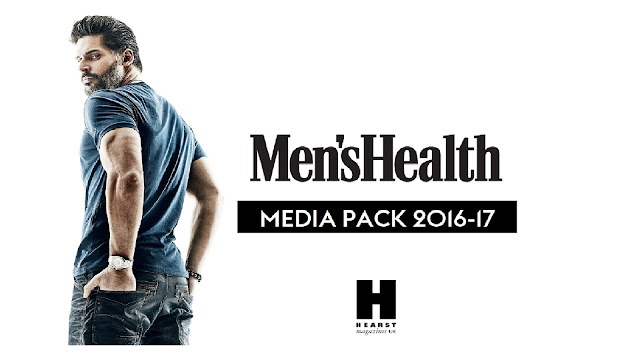Newspapers: The death of print media blog tasks
The death of print media: Factsheet blog tasks
Go to our Media Factsheet archive on the Media Shared drive and openFactsheet 165: The death of print media.
Read the Factsheet and complete the following questions/tasks:
1) What has happened to print media in the last 30 years?
In the last 30 years, the number of people using print media has declined drastically due to other competitors being introduced into the market. For example, the introduction of televisions in the 1950s led to more people deciding to watch the news for free, rather than pay to read a traditional newspaper.
The internet, however, was a greater revolution. There was more freedom on the internet and a new way of communicating was established due to the anonymous nature of the internet. This lead to a larger decline in traditional print newspapers.
2) Why is the Independent newspaper such a good case study for the decline in print media?
The Independent newspaper is the most recent to have 'died' in terms of its print form. Established in 1986, the Independent offered a new and unbias approach to journalism and had many readers. The independent was sold to Evgeny Lebedev for a nominal £1 and £9.25m over the next 10 months. However, the company faced financial difficulties after a scandal concerning the reporter Johann Hari. It was claimed that Hari’s reporting contained inaccuracies and plagiarised materials, which was later found to be true. The newspaper decided to cease all printed forms of the news following the damage to its reputation and it is now only found online.
3) What was the Independent newspaper famous for?
It was famous for offering a new and unbias approach to journalism- The newspaper’s selling line was, until 2011, “free from political bias, free from proprietorial influence”, and the reporting somewhat reflected this; in the last decade of its publication the Independent became known for its unorthodox and campaigning front pages.
4) What did the then-owner of the Independent, Evgeny Lebedev, say about the newspaper's digital-only future?
“The newspaper industry is changing, and that change is being driven by readers. They’re showing us that the future is digital. This decision preserves the Independent brand and allows us to continue to invest in the high-quality editorial content that is attracting more and more readers to our online platforms.” Evegeny Lebedev
5) How do online newspapers make money?
They make money out of the number of views their page receives. This is mostly generated through advertisement on the site.6) What did the Independent's longest-serving editor Simon Kelner warn regarding the switch to digital?
He was worried that the 'originality in its design and the iconoclastic feel of the paper' would be lost if the newspaper was to switch to a digital platform.
7) What is the concern with fake news? What does 'post-truth' refer to?
The concern with fake news is that these types of articles are getting more attention than the legit ones. It has become difficult to regulate and monitor what is fake news and what is real news, which makes creating a profitable online news source even more difficult.
The term 'post-truth' refers to the fact that 'objective facts are less influential in shaping public opinion than appeals to emotion and personal belief.'
8) What is your view on the decline in print media? Should news be free? Is it a concern that established media brands such as the Independent can no longer afford to exist as a printed newspaper?
I believe that independent news companies (such as The Sun or Daily Mail) shouldn't be free because the people who work for those companies are entitled to receive payment for the hard work they do. However, with free news available (like the publically funded BBC and online sources) it is very unlikely that anyone would be willing to pay for news. Therefore, I believe that a new system should be established to allow these newspaper companies to live on. Perhaps they can be funded through tax money or publically funded charities. Ultimately, we should try to preserve newspapers as much as possible because they contain the highest quality of journalism and are the most reliable source for finding out what's happening in our world.
Go to our Media Factsheet archive on the Media Shared drive and openFactsheet 165: The death of print media.
Read the Factsheet and complete the following questions/tasks:
1) What has happened to print media in the last 30 years?
In the last 30 years, the number of people using print media has declined drastically due to other competitors being introduced into the market. For example, the introduction of televisions in the 1950s led to more people deciding to watch the news for free, rather than pay to read a traditional newspaper.
The internet, however, was a greater revolution. There was more freedom on the internet and a new way of communicating was established due to the anonymous nature of the internet. This lead to a larger decline in traditional print newspapers.
2) Why is the Independent newspaper such a good case study for the decline in print media?
The Independent newspaper is the most recent to have 'died' in terms of its print form. Established in 1986, the Independent offered a new and unbias approach to journalism and had many readers. The independent was sold to Evgeny Lebedev for a nominal £1 and £9.25m over the next 10 months. However, the company faced financial difficulties after a scandal concerning the reporter Johann Hari. It was claimed that Hari’s reporting contained inaccuracies and plagiarised materials, which was later found to be true. The newspaper decided to cease all printed forms of the news following the damage to its reputation and it is now only found online.
3) What was the Independent newspaper famous for?
It was famous for offering a new and unbias approach to journalism- The newspaper’s selling line was, until 2011, “free from political bias, free from proprietorial influence”, and the reporting somewhat reflected this; in the last decade of its publication the Independent became known for its unorthodox and campaigning front pages.
4) What did the then-owner of the Independent, Evgeny Lebedev, say about the newspaper's digital-only future?
“The newspaper industry is changing, and that change is being driven by readers. They’re showing us that the future is digital. This decision preserves the Independent brand and allows us to continue to invest in the high-quality editorial content that is attracting more and more readers to our online platforms.” Evegeny Lebedev
5) How do online newspapers make money?
They make money out of the number of views their page receives. This is mostly generated through advertisement on the site.6) What did the Independent's longest-serving editor Simon Kelner warn regarding the switch to digital?
He was worried that the 'originality in its design and the iconoclastic feel of the paper' would be lost if the newspaper was to switch to a digital platform.
7) What is the concern with fake news? What does 'post-truth' refer to?
The concern with fake news is that these types of articles are getting more attention than the legit ones. It has become difficult to regulate and monitor what is fake news and what is real news, which makes creating a profitable online news source even more difficult.
The term 'post-truth' refers to the fact that 'objective facts are less influential in shaping public opinion than appeals to emotion and personal belief.'
8) What is your view on the decline in print media? Should news be free? Is it a concern that established media brands such as the Independent can no longer afford to exist as a printed newspaper?
I believe that independent news companies (such as The Sun or Daily Mail) shouldn't be free because the people who work for those companies are entitled to receive payment for the hard work they do. However, with free news available (like the publically funded BBC and online sources) it is very unlikely that anyone would be willing to pay for news. Therefore, I believe that a new system should be established to allow these newspaper companies to live on. Perhaps they can be funded through tax money or publically funded charities. Ultimately, we should try to preserve newspapers as much as possible because they contain the highest quality of journalism and are the most reliable source for finding out what's happening in our world.



Try Book Matrimonial Ads - 13 services to find the perfect life partner!
ReplyDeleteakama
aka
free
chaloke
strata
180
thai
taikai
find
Book Matrimonial Ads-13 To Find Your Perfect Match Partner!
ReplyDeleteimdb
os
hypixel
molbiol
clever
profiles
storeboard
chaloke
180d